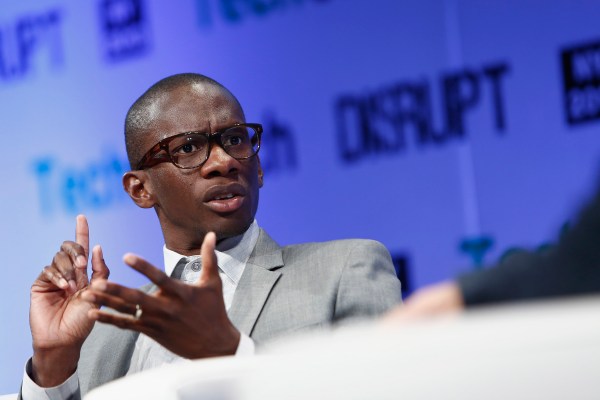During Disrupt, Lady Gaga’s manager and Atom Factory founder, Troy Carter, suggested that the area ripe for disruption in the music industry by technology is terrestrial radio.
For those who still get in their car to listen to music, Carter feels like there are openings for startups to build on top of the platform to bring people what they really want to hear. He shared: “I think the opening right now is really figuring out terrestrial radio, specifically in America because that’s the one space that [pause] you know, everybody thought that Sirius XM was going to be able to do it with subscription radio when they launched but now you look at Clear Channel, you look at CBS Clear Channel specifically has a great platform, a visionary CEO but people still get in the car, for the most part, and they turn on the radio [to] the local station. I think it’s going to be interesting when you can get in your car, turn on the radio turn on the station and you’re listening to a 17 year-old kid in Russia or you’re listening to a 22 year-old kid in his dorm room in Germany. But I think radio’s going to be a real disruption.”
While calling out Sirius as somewhat of a failure in disrupting radio the way that we thought it would, it comes as a bit of a shock that a music mogul like Carter wants to re-focus on radio.
If you’re able to empower DJs all over the world to share the music that they love, and tie it with the power of broadcasting it over the airwaves, more bands and artists can get the attention that they deserve. Currently, big radio stations control what people hear, so democratizing that system could be a massive opportunity.
A company like Slacker Radio has the type of product that could play a role in what Carter suggests.
In regards to the state of the music industry, Carter thinks that technology has always pushed things forward and is an essential part of selling albums and concert tickets: “I don’t think tech has screwed the music industry, the music industry has to adjust to change. When people in remote villages throughout the world can access music, it’s a good thing.” he said.
